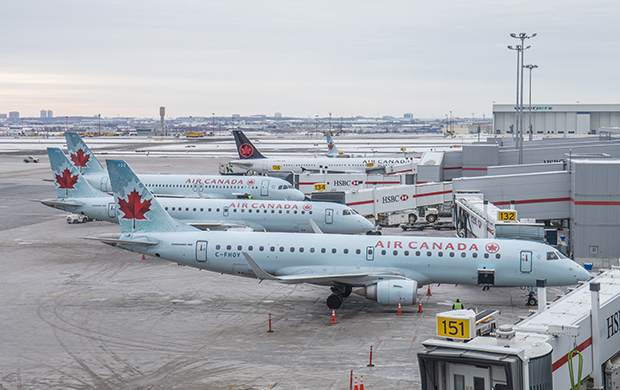Air Canada is navigating a turbulent time as it prepares to possibly suspend most operations due to an ongoing pilots’ dispute.
If unresolved, a major air travel disruption could begin as soon as Sunday, affecting thousands of passengers.
The discussions between Air Canada and the Air Line Pilots Association (ALPA) have been ongoing for 15 months, addressing various aspects of a new collective agreement. Despite progress on several terms, the primary sticking point remains the union’s salary demands, which the airline deems excessive.
Air Canada has emphasised its willingness to reach a fair agreement but highlights that ALPA’s demands surpass typical Canadian wage increases.
If no agreement is met by September 15, Air Canada warns a strike or lockout notice could be issued, triggering a three-day wind down. This plan involves halting nearly all operations, save for Air Canada Express, which operates through third-party carriers.
Air Canada Express flights contribute to about 20% of the group’s daily passenger numbers, retaining some connectivity, although many routes necessitate onward connections through Air Canada.
Chief Executive Michael Rousseau stresses the importance of managing the potential shutdown responsibly to minimise disruption to passengers.
Air Canada is implementing a goodwill policy allowing travellers to change or defer travel plans without charges, aiming to reduce inconvenience and prevent stranding. The airline is also engaging the Canadian government to highlight the broader impacts of the situation.
Rousseau conveyed deep apologies to customers for the potential inconvenience, underlining the airline’s commitment to restoring normal operations swiftly once an agreement is reached.
Air Canada is preparing to execute an orderly shutdown, mapping out steps to resume standard operations quickly post-agreement. The airline estimates a recovery period of 7 to 10 days following a complete shutdown.
These measures, though disruptive, are positioned as necessary interim steps to alleviate prolonged disruptions and maintain customer trust.
This situation unfolds amid a backdrop of increasing airline shutdowns globally, heightening the potential consequences for travellers.
The chaos of abrupt airline network suspensions underlines the need for strategic planning and transparent communications in managing industrial disputes.
The dispute highlights significant challenges in aligning pilot wage demands with broader industry wage trends, potentially influencing future airline-union negotiations.
This situation may set a precedent affecting similar negotiations, emphasising the need for balanced agreements ensuring airline viability without compromising employee satisfaction.
Both the public and Canadian government have expressed concerns regarding the potential disruptions, stressing the need for a swift resolution.
The situation underscores the critical role of airlines in national connectivity and economic stability, heightening pressure on all parties to find a solution.
Air Canada’s potential operational shutdown amidst pilot negotiations highlights the intricate balance between fair employee agreements and service continuity.
Achieving a resolution is imperative not only for the airline’s stability but also for customer trust and industry standards.

